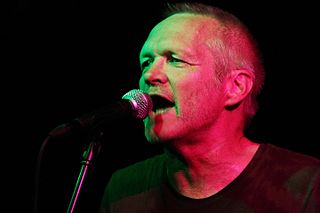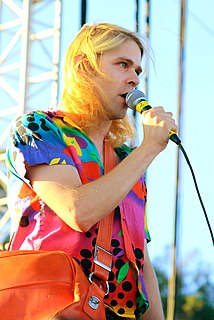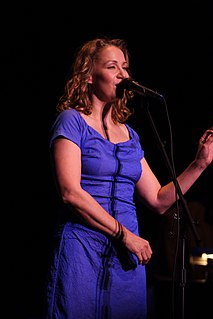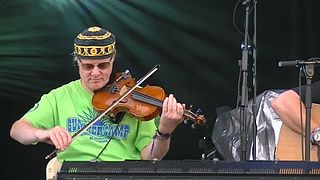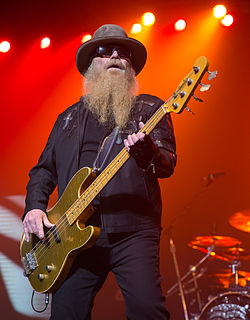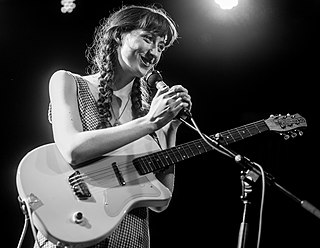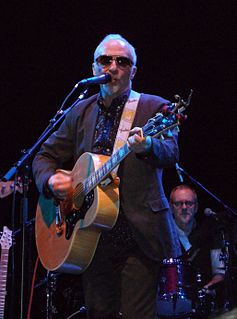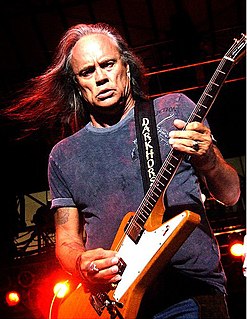A Quote by G.W. Sok
From what I see, nowadays punk and anarchy are still connected with "fast loud music by smelly drunk chaos-people" and, yes, I know I'm over-generalizing here. So when the occasional venue still describes us The ex as "anarchopunk" that's a real bummer, since it attracts an audience that expects a kind of music - which we don't play - and it keeps away another audience that actually might have liked it when they would have come. That's a pity, for both them and us.
Related Quotes
My music already has this oldish kind of quality to it, like you don't necessarily know what era it was recorded in, so it all kind of felt surreal and weird. Night after night when I played live, I was really trying to figure it out in real time, and I still don't know what effect I'm going for or what effect I actually achieve. Looking back, I feel like it would be arrogant of me not to appreciate the fact that I've been able to do whatever I want and still have an audience come see me.
Even if I'm doing a show and there's five people in the audience and the sound system is terrible - I mean, it's been a while but I've certainly done those kind of shows where it's just every conceivable thing is against you - you still have music. It's still something that's real whether there's five people in the audience or a hundred thousand people in the audience. And that's always been there for me.
I think I'm really part of a whole generational movement in a way. I think a lot of other people since and during this time have gotten interested in writing what we can still call experimental music. It's not commercial music. And it's really a concert music, but a concert music for our time. And wanting to find the audience, because we've discovered the audience is really there. Those became really clear with Einstein on the Beach.
I kind of roll my eyes when people say they make music for themselves or they make art just for themselves, because, maybe in their head, what that means is that they're making it for someone who they don't think is real. Their audience isn't real. But it's still a communicative act. It's still an outward manifestation of longing.
We have an incredible audience. I'm as proud of how Fairport relates to its audience as I am of any music we have produced. I think we're a real people's band. Massive popular success has never bothered Fairport. We've never been put in the position of being celebrities. A Fairport concert is like a meeting of friends. There's no big, security wall around us. It's kind of how music should be.
The average age of the Jazz audience is increasing rapidly. Rapidly enough to suggest that there is no replacement among young people. Young people aren't starting to listen to Jazz and carrying it along in their lives with them. Jazz is becoming more like Classical music in terms of its relationship to the audience. And just a Classical music is grappling with the problem of audience development, so is Jazz grappling with this problem. I believe, deeply that Jazz is still a very vital music that has much to say to ordinary people. But it has to be systematic about getting out the message.
The only reward the musician receives is music: the privilege of standing in the presence of music when it leans over and takes us into its confidence. As it is for the audience. In this moment everything else is irrelevant and without power. For those in music, this is the moment when life becomes real.
My dad isn't sure how I make a living because I'm not in the newspapers or on music shows any more. The world is bigger than England, however, but for the large part, yes, people don't know who I am. What are you gonna do? Unless you're a superstar act that attracts young people because it might be their last chance to see you before you die, then it's fairly typical. I'm astonished that I have any audience at all, to be honest.
